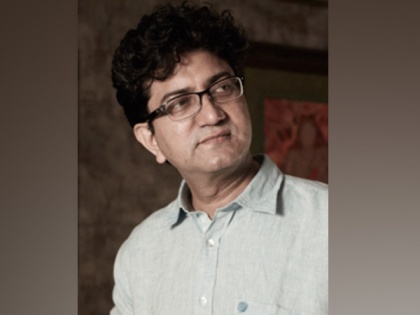Abolition of FCAT part of 'extensive tribunal reform': CBFC chairperson Prasoon Joshi
By ANI | Published: April 8, 2021 06:22 PM2021-04-08T18:22:24+5:302021-04-08T18:30:08+5:30
After facing backlash from the film industry on the Centre's decision to scrap the cinema's statuary body - Film Certification Appellate Tribunal (FCAT), Prasoon Joshi, chairperson of Central Board of Film Certification (CBFC), shared his opinion on the matter with a hope to handle cine concerns "amicably" with the Centre.

Abolition of FCAT part of 'extensive tribunal reform': CBFC chairperson Prasoon Joshi
After facing backlash from the film industry on the Centre's decision to scrap the cinema's statuary body - Film Certification Appellate Tribunal (FCAT), Prasoon Joshi, chairperson of Central Board of Film Certification (CBFC), shared his opinion on the matter with a hope to handle cine concerns "amicably" with the Centre.
FCAT was abolished by the central government on April 4. following which filmmakers like Anurag Kashyap, Hansal Mehta, and more expressed their displeasure.
"This is part of extensive tribunal reform. One understands that this a procedural rationalisation of multiple tribunals not just FCAT, which have been either merged or reduced from 26 to 19 based on functional similarity," said Joshi in a statement.
The CBFC chairperson further said that apart from increased functional efficiency, the move shall reduce the burden on the public exchequer, especially when the public at large is not a direct litigant in many of these tribunals.
"From our industry's specific standpoint, the fact is that over the last few years, the number of films needing to go to an appellate body has seen a steady decline. Over the last two-three years only around 0.2 percent of films were taken to FCAT and am sure this gap can be further closed," he said.
Explaining the impact of synchronisation between CBFC board and other stakeholders, he concluded, "As I sincerely believe that when the industry has the key body - the CBFC working in an efficient and pragmatic manner, all matters and concerns can be dealt with responsibly, amicably and in the spirit of collaboration between the stakeholders."
FCAT, the statuary body in India, was tasked with 'regulating the public exhibition of films under the provisions of the Cinematograph Act 1952'. It was established to monitor whether a film was suitable for public exhibition or not.
Following a knock-back from the Parliament on 'The Tribunals Reform Bill 2021', that was introduced by Minister of State for Finance Anurag Singh Thakur, an ordinance was passed on April 4, through which the government terminated eight appellate tribunals, including FCAT in order to maintain a proper mechsm for filing cine concerns or appeal directly to the commercial court or a high court.
( With inputs from ANI )
Disclaimer: This post has been auto-published from an agency feed without any modifications to the text and has not been reviewed by an editor
Open in app